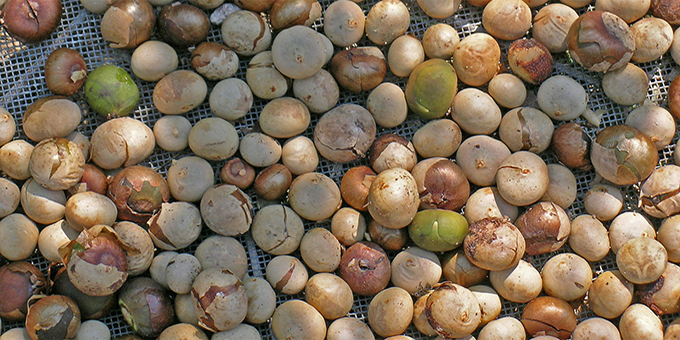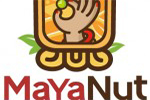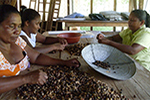By Iván Ulchur Rota
If you haven’t heard of the maya nut yet, pay attention: you’ve been missing out! Though not necessarily well known today, it is now slowly making way in the market. It’s got a lot going for it: gluten-free, nutrient-dense and zero-fat, with vitamins A, B, C and E, calcium, potassium, zinc, iron and lots of protein.
As a health food, it can be used by people suffering from medical conditions including irritable bowel syndrome —for the fibre— and arthritis and osteoporosis —for its calcium-magnesium proportions.
“I’m always wary of the term ‘super food’, but Maya Nuts are pretty extraordinary in the combination of benefits they pack” notes Canopy Bridge co-founder Jacob Olander. “They provide for health and nutrition at both ends of the supply chain, for both for consumers and for the communities that produce them, and their sustainable harvest can be a powerful tool for conserving imperiled tropical forests.”
Found in abundance in the Maya Biosphere Reserve of Guatemala, many farming and indigenous communities have been using it as a great alternative to maize. Why? It can be chopped or crushed for tortillas, cookies and pancakes. And when it’s dry, it can be stored for years.
“It´s great famine food”, explains Erika Volhman director the Maya Nut Institute. “Because it will never go rancid.” But it is also so much more than famine food. That’s why the mission of the Maya Nut Institute is to “find balance between people, food and forests by teaching rural communities about the value of Maya Nut for food, fodder, ecosystem services and income.”
The Maya Nut is also known as breadnut or Ramon, after the tree it grows from (Brosimum alicastrum). While the tree is unfortunately still more known for timber than for its extraordinary seed, many communities are focusing on the Maya Nut for being a sustainable natural product: much of it is still wild-harvested, so the safer the trees, the more nut there is to consume and sell. Eight groups of community producers in Guatemala under ACOFOP (Association of Forest Communities of the Peten) are now sustainably managing 120,000 hectares (almost 300,000 acres) of native forests for nut production. “By earning income from managed Ramon forests, local communities can improve their livelihoods and deliver fundamental ecosystem benefits like protecting our water sources, providing refuge for local flora and fauna, and bolstering ecosystems that are more resilient to climate change,” emphasizes Julio Javier Madrid of ACOFOP.
The nut could be used in all recipes that use flour, nuts, seeds, wheat germ, or oats. According to The Maya Nut Institute, companies that purchase the nut include beer breweries, coffee and tea shops like Denver Beer Co and Montavida Coffee Shop.
And the trend is expanding. For Organic Matters, a Canada-based supplier of organic ingredients sourced locally and organically, the possibilities for the maya nut are endless. When roasted, it has coffee-like flavour with “hints of cocoa” and can be consumed as a hot beverage. Teeccino sells ground Ramon as a no-caf coffee alternative in the United States.
Interestingly, the Maya Nut is not really a nut; it is a drupe. “Nut” sounds admittedly more appealing. According to Erika Volhman, it’s been called that because it is “sort of nut like and nut sounds like good, yummy food.” On the flip side, the fact that it is not in fact a nut means that it doesn’t contain the tree allergens that can trigger reactions in people with allergies to true nuts.
Nut or no nut, there is growing fandom for this ancestral food. And they are onto something: the Maya Nut is definitely up and coming.
Recommended Links
[clear]






Hi
I need ramon tree seeds at india .
Can you make it available on Amazon.
Ritesh
Hi Ritezh,
Please send me an email to: gianfrancoreyes17@gmail.com